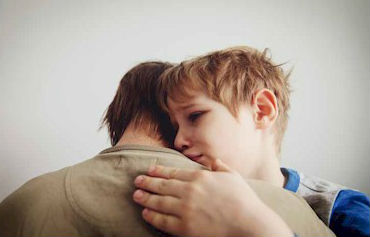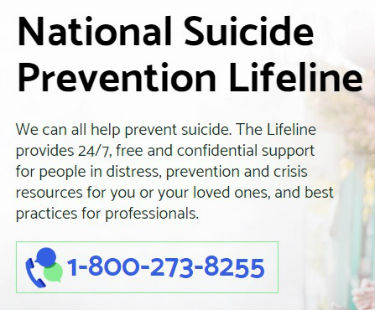When Someone Takes Their Life…
By Richard Fowler

Editor’s Note: Most years I go to a Christian festival in Europe, and usually it’s the same driver who picks me up and takes me back to the airport, and we’ve got to know each other a little bit. This time I could tell something was wrong. Somehow it was in his eyes. They seemed sad and reflective, as if the sparkle had gone out of them. “How are you?” I asked. He shook his head negatively from side to side. “Not really good”, he replied. “I’m sorry to hear that”, I continued. “Since I last saw you”, he said, “I’ve lost one of my sons”. Tears began to flow slowly down his cheeks. “They say it was suicide. He was only fifteen”. He showed me the boy’s picture on his phone’s screen saver. “He was such a handsome young man”, I commented. “Yes”, he choked up, “and I will not see him again”.
Sadly, we hear too often of young people who take their own life, and in the following article Richard Fowler suggests some ideas about how to approach this heart-rending subject. – James Henderson.
I was so young when I saw it, maybe too young to understand. I was at the beginning of my life, and he was trying to end his.
We lived in a secluded area of just four houses. That day, my parents had noticed something strange happening outside one of them. Even though I was young, I could tell something was not right. Our neighbour was sitting in his car with the engine on, and he seemed asleep. I was asked to stay inside, but I knew what was happening. I did not understand my emotions at the time, but I felt uncomfortable. Something had to be done. My dad intervened and stopped the exhaust fumes from filling up the car. This time, at least, a tragic death was avoided. Our neighbour eventually woke up and turned the engine off.
At that age, I found it hard to understand how someone could want to end his own life. I, mentally and emotionally, simply could not get what he had been thinking. And maybe I still can’t. Perhaps we all find it hard to understand – to reach someone who is hurting from life so much that he or she does not want to carry on living.
Is there any way, or anyone, who can reach us in such a dark hour? And is there any hope beyond the tragedy?
Kevin Hines is a man that shares his story around the world of hope, healing, and recovery. In a powerful interview he shares how he survived his own suicide attempt when he jumped off the Golden Gate bridge. But his story isn’t just amazing because of his survival, but also because of what he can now tell us.
Kevin was someone who had suffered from a number of mental illnesses. In his late teens he felt he was a burden to all those who loved him. In 2001, after writing his suicide note, he travelled to the Golden Gate bridge. He simply felt nobody cared. But, as he retells his story of that day, he reflects, “but the reality was, everybody cared, I just couldn’t see it.” What he then tells us is what 19 other Golden Gate bridge jump survivors have also said: “The millisecond my hands left the rail, it was an instant regret. And no one’s going to know that I didn’t want to die.” Four seconds later, he hit the water at 75mph.
When the coast guard pulled him from the water, astonished to find Kevin alive, he put his hand on Kevin’s forehead and said, “You’re a miracle.” The next conversation Kevin had was when his dad walked into the hospital. His father took one step into the hospital room, Kevin looked up at him and said, “Dad, I’m sorry”. His dad replied, “No, I’m sorry.” Both men’s first reactions were guilt. Guilt, as Kevin explains, that did not belong to either of them.

As Kevin finishes telling us his story, he explains that, although he still has his mental health difficulties, he has learnt how to cope. He has built a support network around him – so often crises that we go through do end up passing, and better times replace them. He encourages us to remember: “it’s ok not to be ok. But it’s not ok to not ask for someone to help and back you up.”
Help. This is what Kevin wanted when he was going through his darkest hour. He said, “All I wanted was for one person to look me in the eye and say, ‘Hey, kid, are you ok?’”
And that is exactly what happen one day in 2008, at Waterloo Bridge, London. As Jonny Benjamin was going to take his own life, Neil Laybourn, walked by. Neil stopped and talked to Jonny saying, “It’ll get better mate, you will get better.” His words encouraged Jonny not to jump. After this life-changing day, Jonny searched for this stranger who had helped him by launching a campaign that went global – their reunion was turned into an award-winning documentary. When Jonny found Neil, they became friends. And then ran the London Marathon together. Even passing under the spot where their journey had started – Waterloo Bridge. And in the most ironic of role reversals, during the marathon, it was Jonny, this time, who said to Neil, when he needed to stop due to cramp, “Whatever you do, I’m going to stay with you.” I guess we all need someone to stay with us. Someone to run the race of life with. Statistically, for every one person who dies by suicide there are 287 people who seriously think about suicide but don’t go ahead with it. Revelation 20:12, NIV.
Not all stories end like the three shared in this article. The pain experienced by those who are affected by this tragedy is something our community cannot forget or ignore – life is not the same for them. Surely, we can grieve with them, and be sensitive in how we do this. After all, when someone takes his or her own life, there are so many questions that remain. Why? What was the reason? Could we have done something that would have prevented it? For some there may be a spiritual question: is he or she lost forever? Is it the end of the story? Is there hope? Will I see him or her again?

That childhood experience when I saw our neighbour in his car left me confused and with many questions, but something within me has changed since then. Much later, when I was a teenager, my friend’s sister took her life, but, this time, my reaction was different. I’d like to share with you my own perspective which, I know, you may not hold. Maybe for the first time, I knew that I had a faith that claimed love conquers death, no matter how the death occurred. Our lives are not defined by how we might damage ourselves or by our self-image. For in us, there’s so much more living; even when things are at their most bleak, there is still hope. My faith continues to grow in a God who grieves with us when we grieve. I believe that, although death may separate us from our loved ones, it cannot separate us from the author of life: the God who loves us, and who will bring us back from death to be a part of an eternal story with him.
A first century visionary writer called John tells us of a new chapter that is coming in the story of all those who have and will die: “And I saw the dead, great and small, standing before the throne, and books were opened. Another book was opened, which is the book of life” (Revelation 20:12). For all those who want a new life, a new story whose chapters are written alongside our co-author Jesus Christ, then their name can be written into the book of life: a life full of healing, hope and happiness.
This article originally appeared in Because Magazine
© Copyright 2019 Grace Communion International registered as Worldwide Church of God
